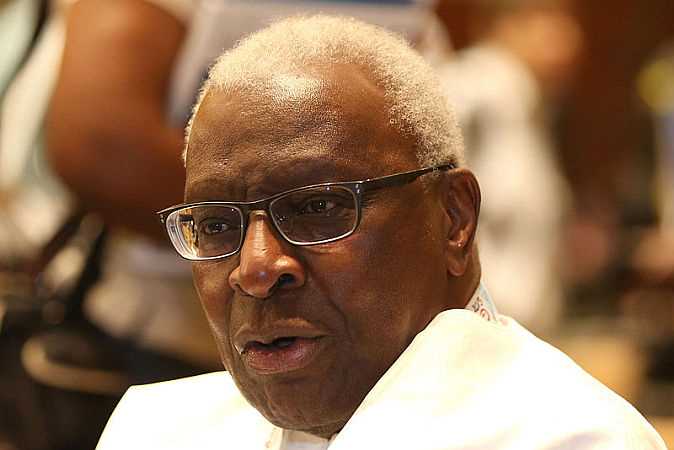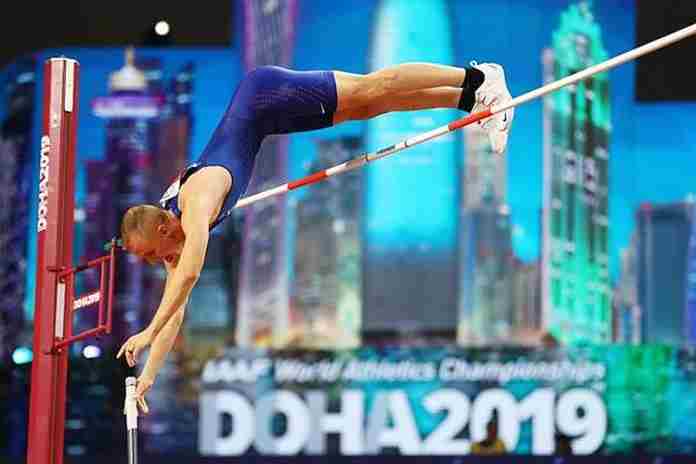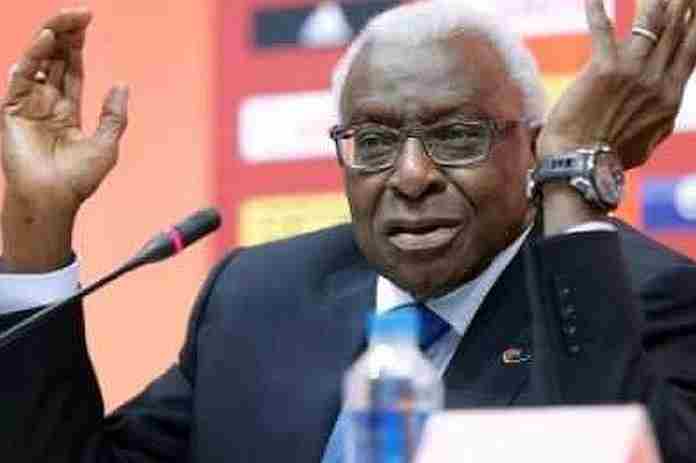For those who care about track & field – as I do – the current edition of the IAAF World Championships are at the same time exhilarating and depressing.
Exhilarating because of the sensational performances by athletes who will become headline performers – ahead of baseball, football and basketball stars – for a couple of weeks next summer and hopefully beyond to the first World Championships to be held in the United States, in 2021.
The drama and emotion of Tuesday’s pole vault competition that came down to defending champion Sam Kendricks of the U.S. and Louisiana-born Mondo Duplantis, who competes for Sweden to honor his mother, was the kind of heart-pounding battle that makes the sport so thrilling. The sight of all three medalists – Kendricks, Duplantis and Poland’s Piotr Lisek – doing a simultaneous somersault in the pit after the final jump was not just memorable, but a feel-good ending of a titanic struggle.
The same for the brilliant finish of Dutch star Sifan Hassan in the women’s 10,000 m, who came from Ethiopia as a refugee, took up running and now owns a Worlds gold and will try for a second in the 5,000 m.
And much more, with the action continuing through Sunday. But it is also deeply depressing to see the swaths of empty seats in the Khalifa International Stadium.
The best reporting on this has been by the BBC, which has revealed:
● The actual seating availability was reduced to 21,000, by covering entire sections with banners; the listed capacity is 48,000.
● Actual attendance on the first day (Friday: 27th) was 13,288, but then went down to 11,300 plus accredited guests on Saturday. No further figures have been seen.
Add this in to the 100-degree-plus temperatures (F) which made the women’s marathons and the 50 km walks exercises in medical triage as much as races, and the late date of the event, more than a month later than ever before, and there has been plenty of criticism to go around.
The current IAAF administration, led by new Chief Executive Jon Ridgeon – a 13.29 high hurdler who won the Worlds silver in the event in 1987 – has explained that the Qatar diplomatic crisis that began in 2017 and currently includes a blockade by Saudi Arabia, Bahrain, the United Arab Emirates and Egypt has been a problem. Acknowledging the lack of attendance, he noted:
“There would be an awful lot more people here if the blockade was not in place. The blockade is one of the factors.
“I’m not blaming it, but it’s one of the factors, but you have to understand the political challenges this country faces right now, which was never envisaged when this meeting was awarded.”
Ah, yes, when the meet was awarded. That was back in 2014, when the IAAF was being directed by President Lamine Diack of Senegal. He’s awaiting trial sometime later this year in France on charges of extortion, fraud and money laundering, among other charges.
During his tenure as IAAF chief beginning in 1999, the World Championships had been placed in major world capitals such as Helsinki, Berlin, Moscow and Beijing. There had been an odd Worlds placed in Daegu, the third-largest city in South Korea , in 2011, that was also poorly attended, but not like Doha.
When the selection of Doha was made in 2014, its bid defeated Eugene Oregon and Barcelona (ESP), 12-9-6 in the first round and then Eugene, 15-12, in the final round. Diack was in the midst of this selection and there were rumors of corruption at the time and afterwards. Perhaps we will know more from the French trial.
But the IAAF’s selection of Doha, and the subsequent awarding of the event to Eugene for 2021 without a bid process, were on Diack’s watch and there is little doubt that he was involved.
From somewhere in France, still under house arrest, he is no doubt watching the event with keen interest. You have to wonder whether the 86-year-old is quietly chuckling at the chaos.
To the credit of the IAAF’s senior team, including President Sebastian Coe, and Ridgeon, Diack’s name has not been mentioned in the media. As Ridgeon stated, the political situation in the Middle East is much different today than five years ago.
But there is a real lesson to be learned from the IAAF’s experience in placing its Worlds in Doha, with its heat and humidity and so late – historically late – on the calendar. What has been debated these days is the question of whether it is right to take a major event like this and place it so as to help grow the sport vs. having a energetic and celebratory atmosphere in front of sold-out crowds as was the case in London in 2017.
The concept of “universality” and taking the Olympic Games and other events to places like the Arabian Gulf, Africa and South America have been part of the Olympic Movement for decades. The International Olympic Committee did so by placing the 2016 Games in Rio de Janeiro, Brazil, with mixed results … including lots of empty seats at the track & field events. It has assigned the 2022 Youth Olympic Games to Dakar (SEN) for 2022, to show that an “Olympic” event can be held in Africa.
But the Doha experience is raising the question of athlete prerogatives, especially the desire for a mostly-full stadium to raise their energy, vs. an idea that a “world championships” should be held in different locations around the world.
It’s not an easy question to answer, and the IAAF is not the first one to find this out, and won’t be the last. The Federation Internationale de Gymnastique (FIG) held its World Artistic Championships in Doha in 2018 … in front of mostly-empty stands. FIFA will hold the 2022 World Cup there – in November and December – and has already been embroiled in multiple controversies over the conditions for construction workers building new stadiums for the event.
And FINA will hold the World Aquatics Championships in Doha in 2023; while dates for that event have not been set, the event is usually held in July. The average daily high temperature in Doha during that month is 107 degrees (F) and 106 in August. Would you like to be an open-water swimmer at that Championships?
The emphasis on “athlete rights” and “hearing the athlete’s voice” are have usually been about safety and commercial earning power. Now, that element is face-to-face with the desire – up to now, also widely accepted – that major events need to be staged everywhere around the world to make them truly global. There is no satisfying way to choose between these alternatives when stark choices must be made; if athlete groups have specific desires about this, they need to make them much better known than they are now.
In the meantime, Diack is awaiting trial. If it’s not on the list of charges already, how about “crimes against Athletics?”
Rich Perelman
Editor
If you enjoyed this commentary, sign up to receive the TSX Report by e-mail by clicking here. You can also refer a friend by clicking here.






















